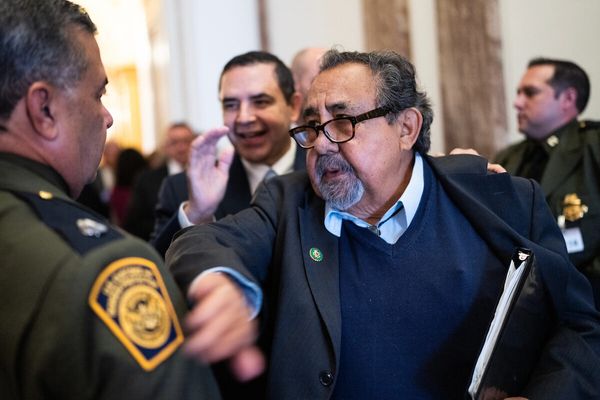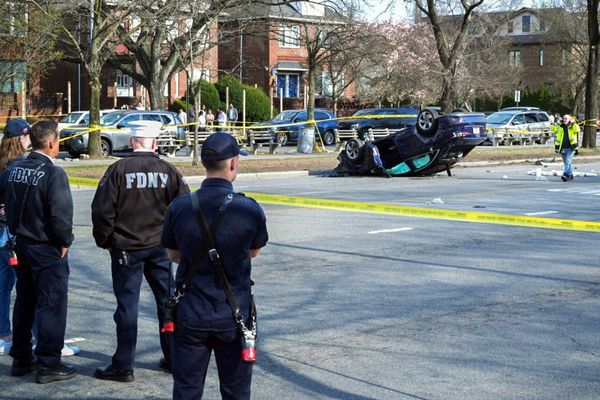
Support truly
independent journalism
There are only a handful of people who know exactly what is happening in the Manchester City case and one of them had to promote the new Premier League season this week.
“It’s clear we have some regulatory challenges,” competition chief executive Richard Masters said. “But I’m confident we can navigate all of that and, by the time we sit down again in 12 months, a lot of that stuff will be clearer and we can have the way we always want it, which is the football front and centre.”
It’s quite a hopeful spin that is perhaps natural from the world’s most bombastic league, especially since this season could involve a storm like no other. This could well be the most controversial and consequential campaign in the English game’s history, that reaches both Bosman and Italy’s Calciopoli in terms of its effects. It could change the face of the table, the future, the past, as well as the Premier League’s very image. An outcome of the City case is expected by April, but any time that late is almost even worse for the Premier League.
There is a striking thought, that feels like it hasn’t been fully grasped as pundits talk about whether Pep Guardiola must sign another forward.
If the repeat champions are found guilty, it could mean the main title challengers suddenly drop right down the table or even be expelled. It’s why this really has to be discussed before any other football this season, as the English game faces a truly unprecedented situation. If it does get to that, it will bring doubt on all of their titles going back to the start of the period covered by these 100-plus charges. Even if City are found not guilty, or any sanction is deemed too soft, the fervent feeling among rivals could lead to civil war. Aside from the upheaval of financial rules, there is the possibility of open revolt from clubs who believe they can’t compete with a state-owned project.
As if that wasn’t enough, an outcome of the investigation into Chelsea over payments made during Roman Abramovich’s ownership is expected by November, and there is a belief a guilty verdict could bring a points deduction and transfer ban. The club’s signings make much more sense through that prism. With outstanding legal cases involving Everton and Leicester City, too, we are talking about 15 years of Premier League history potentially being recast to go with the existential problem of whether the league table can even be trusted.
“Some regulatory challenges” is really putting it mildly. The Premier League, as has been said on these pages before, is in a new legal era. That is a consequence of years of lax regulation, so this season may represent a peak, or perhaps a nadir. “Asterisks on the league table,” to paraphrase Masters, might well be normalised rather than something that unnerves people.
With the City case - which is partly about whether owner funding has been wilfully disguised as sponsorship - there has been renewed focus within football on the revelation that Uefa’s initial 2020 report on their own investigation featured the detail that an individual named by the club’s lawyer as “Jaber Mohamed” paid £30m that was supposed to come from telecommunications sponsor Etisalat. He was described as “a person in the business of providing financial and brokering services to commercial entities in the UAE”, but the report adds “the obvious question, not answered at any point” is why the sponsor or the owner “should have needed any financial assistance from a broker in paying the Etisalat sponsorship liabilities”. City said that Etisalat repaid the money in 2015 but this was not accepted by the Uefa adjudicatory committee. The club insist on their innocence.
So much for talking about the football. And yet there are two ironies to this.
One is that this case feels much more unpredictable than the title race. City are going for another unprecedented development in a fifth successive title, as well as a seventh in eight years. That is a very different problem for the Premier League’s image, especially as regards its excitement.
The second irony, however, is that this is the closest it has felt to City being unseated in half a decade.
Mikel Arteta has spent the summer obsessing on his own fine details, for a final step. The feeling is that Arsenal are there, bar just getting over the line. Of course, the line can be moved. There are at least signs that a staleness is afflicting City, in a squad that does suddenly look light. That could be the final detail.
Except, similar has been said in recent seasons, and then everyone just sees Erling Haaland, Phil Foden, Bernardo Silva, Kevin De Bruyne and Rodri kick into gear. Rodri wasn’t even considered the best player in the world over that period. He is now.
Such fanciful ideas - and the manner that City runs ultimately destroyed them - ended up exhausting Jurgen Klopp, to create one of this season’s more traditional big storylines. That is how a major club adapts after the departure of a patriarchal figure. The signs from Arne Slot’s more technical football with a good Liverpool squad have been positive, but there’s still a gap between that and proper impact. Underneath, Erik ten Hag has stayed as Manchester United attempt to show a number of lessons have been learned.
Some things don’t change, which is how it feels trying to predict many elements like top four and top scorer. More money has calcified the league, which has led to a lot of debate, as well as this season’s trialled changes to financial rules based on squad cost ratio. That is set to be another storyline.
Ange Postecoglou’s Tottenham Hotspur look set to take advantage of any slip but feel like they need more. Unai Emery has been at the centre of a big club losing a big figure, to come out the other side and achieve the supreme feat of breaking into the Champions League with Aston Villa. The wonder is whether a changed European calendar affects them, as well as the wider league. This is perhaps something else people haven’t registered, as Uefa’s expanded competitions are now almost full seasons, with fixtures in January. It will distort things, either favouring bigger squads or perhaps meaning Newcastle United feel the benefit of no European football.
There are potential surprises there to complement those at the bottom.
For all that a preview like this focuses on grander issues, there is still a reason the Premier League attracts 50 per cent of all the broadcast money that is spent on the five major leagues. It remains so absorbing. You can be justifiably complaining about its many issues on Saturday morning only to be gushing about the latest drama by Saturday afternoon.
It never wants for storylines, of which the regulatory cases conversely add to. That drama is generally most visible in a chaotic bottom half, that is set to be enlivened this season by the wonder of Ipswich Town’s football. It was a small positive that Kieran McKenna decided to see out a season with the club, which says enough about the direction of modern football.
It says more about the direction of the modern Premier League that potential points deductions have to be factored into how that relegation battle might look by the season’s end.
As to how it starts, the first Super Sunday is Chelsea-Manchester City. It will be impossible to just talk about the football, much as the football admittedly tries.







